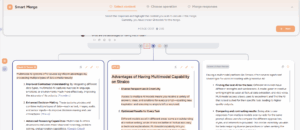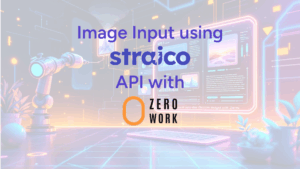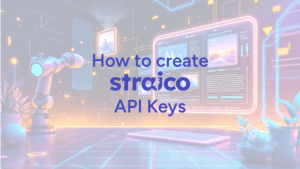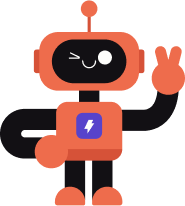Artificial Intelligence (AI) has witnessed remarkable progress, sparking its integration into diverse sectors, among them, education. This integration is reshaping the conventional classroom, infusing it with greater interactivity and immersion. In this age of technological evolution, AI’s impact on education extends beyond mere entertainment value; it is fundamentally altering how students engage with learning materials and data. In this discourse, we delve into the myriad applications of AI in education, unveiling a selection of top-tier AI tools designed to empower students and enhance their academic performance
Table of Contents
ToggleThe Role of AI in Education
AI technology can be used in education for different purposes, including delivering personalized learning experiences, automating administrative tasks, and improving student engagement and motivation. Moreover, AI can analyze vast amounts of data to make informed decisions on student performance, pedagogical theories, and curriculum design. As a result, it provides educators and learners with more accessible tools to not only develop knowledge and solve problems but also help them to present it. Straico, a single access point to the world’s leading generative AI models for text, images, and audio has a template that helps students build these presentations in a fraction of a second.
Type of AI Tools for Students
Smart Study Assistants
AI-powered note-taking apps use intelligent algorithms to automate the note-taking process, highlight important information, provide automatic summarization, and organize study materials for students.
Language Learning Platforms
Language learning apps such as Duolingo and Babbel use AI to provide personalized language tutoring to students, incorporating speech recognition technology to help students improve their pronunciation and offering customized lesson plans based on the student’s learning pace. And if you are a teacher looking for lesson plans, look no further. Straico does it for you. See this example.
Virtual Tutor Assistants
AI-powered virtual tutor assistants can provide personalized learning experiences to students, assisting them with study planning, time management, and test-taking strategies. These assistants can also help students understand difficult concepts and track their progress throughout the academic year.
Writing and Grammar Assistance Tools
AI-based essay and paper writing tools like Essaybot and AI Writer can generate essays and research papers automatically using advanced algorithms to analyze the topic, conduct research, and generate original content for students. Moreover, tools like Straico can provide blog ideas as well so that you don’t have to spend time thinking of new ideas every day.
Grammar Checker and Plagiarism Detection Software
Grammar checkers such as Grammarly and ProWritingAid use advanced AI algorithms to detect grammar errors, suggest improvements, and provide feedback on overall writing style. Plagiarism detection software like Turnitin and Dupli Checker use AI algorithms to detect copied content and ensure academic integrity.
AI-powered Math Solvers
Math applications like Photomath and Mathway use advanced algorithms to help students solve complex equations by taking a photo of the problem or typing it directly into the app, offering valuable support in understanding and solving mathematical problems.
Interactive Digital Learning Resources
AI-powered interactive simulations, such as applications like PhET Interactive Simulations, provide interactive representations of difficult concepts and use AI to understand how students interact with simulations, identify areas of difficulty, and provide personalized feedback.
Virtual Reality Educational Experiences
VR applications such as Google Expeditions use virtual reality technology to expose students to different experiences to enhance their learning experience, providing immersive learning experiences that can greatly enhance student engagement.
Best AI Tools Available
Straico
Straico stands out as the best learning tool for educators, offering a range of powerful features. Additionally, with Straico, educators can seamlessly create quizzes tailored to their class content, leveraging the advanced capabilities of GPT-4 Turbo 128K for a preview of unparalleled quiz design. Additionally, the tool empowers educators to craft engaging slides for Google or PowerPoint presentations, ensuring dynamic and visually appealing lessons.
Straico goes beyond by allowing the creation of unit or learning objectives, aiding in structuring comprehensive educational plans. Whether seeking inspiration or concrete guidance, educators can use Straico to generate personalized lesson plan ideas, fostering a more tailored and effective teaching approach. Moreover, the tool enables the creation of detailed rubrics, providing educators with a valuable resource for assessing and grading student performance. In essence, Straico emerges as an essential companion for educators, enhancing the efficiency and creativity of lesson planning and content creation.
Grammarly:
Good writing skills are essential for academic success. Grammarly is an AI-powered tool that helps students improve their writing by detecting and correcting grammar, spelling, and punctuation errors. It also provides suggestions to enhance the clarity and coherence of their writing. With Grammarly, students can submit error-free assignments and essays, boosting their confidence and grades.
Wolfram Alpha:
Wolfram Alpha is a powerful computational knowledge engine that can answer complex questions and provide step-by-step solutions for a wide range of subjects. Therefore, it is particularly useful for students studying mathematics, physics, chemistry, and engineering. Whether it’s solving equations, graphing functions, or understanding statistical data, Wolfram Alpha can be an invaluable tool for students looking for accurate and reliable information.
Quizlet:
Quizlet is an AI-powered flashcard and study tool that helps students memorize and review information effectively. It allows users to create their flashcards or choose from a vast library of existing flashcards on various subjects. Moreover, Quizlet’s AI algorithms personalize the learning experience by adapting to the student’s progress and focusing on areas that need improvement. It also offers different study modes, such as quizzes and games, to make learning engaging and fun.
Socratic:
Socratic is an AI-powered homework helper that provides step-by-step explanations and solutions for a wide range of subjects. Additionally, by simply taking a photo of a question or typing it in, students can receive instant explanations, video tutorials, and relevant resources to help them understand and solve the problem. Above all, Socratic covers subjects like math, science, history, English, and more, making it a versatile tool for students across different disciplines.
Duolingo:
Learning a new language has never been easier with Duolingo. This popular AI-powered language learning app offers interactive lessons, quizzes, and personalized feedback to help students develop their language skills. Duolingo’s gamified approach, with rewards and achievements, keeps students motivated and engaged throughout their language learning journey. It covers a wide range of languages, making it suitable for students interested in learning a foreign language for academic or personal purposes.
Mind Meister
Mind mapping is an effective technique for organizing thoughts and ideas. MindMeister is an AI-powered mind-mapping tool that allows students to create, edit, and collaborate on mind maps in real time. It helps students visualize and connect concepts, making it easier to understand complex topics and plan their assignments. With its intuitive interface and cloud-based storage, MindMeister is an excellent tool for brainstorming, note-taking, and project management.
Benefits of AI Tools for Students
Personalized Learning:
- Tailored Instruction: AI algorithms analyze students’ learning patterns and preferences to provide customized learning experiences. This helps cater to individual strengths and weaknesses.
- Improved Understanding: By adapting content and pacing to match students’ needs, AI tools promote deeper comprehension and mastery of concepts. This leads to better academic outcomes.
- Self-Paced Learning: Students can progress through material at their own pace, receiving additional support or challenges as needed. It fosters a sense of autonomy and confidence in their learning journey.
Enhanced Accessibility:
- Inclusive Learning: AI-powered tools can accommodate diverse learning needs by offering alternative formats, such as audio descriptions or text-to-speech capabilities. It makes educational content more accessible to students with disabilities or language barriers.
- Empowerment: By providing tools that assist with tasks like reading or navigation, AI promotes independence. These AI tools also empower students to actively engage in their education regardless of physical or cognitive limitations.
Efficient Time Management:
- Optimized Study Routines: AI tools analyze students’ schedules and workloads to help them prioritize tasks, allocate time effectively, and avoid procrastination. This leads to better time management skills and reduced academic stress.
- Consistent Focus: Features like distraction-blocking or task scheduling help students maintain focus during study sessions. In return, this maximizes productivity and minimizes time wasted on non-essential activities. Here is an example of how a computer science graduate can schedule his meeting tasks using Straico.
Interactive Learning Experiences:
- Engagement: AI-powered simulations, gamified activities, and interactive exercises make learning more engaging and enjoyable. This also motivates students to actively participate and explore complex concepts in a hands-on manner.
- Real-World Application: Simulations and virtual labs allow students to experiment and apply theoretical knowledge in practical contexts. It also enhances their understanding and prepares them for real-world challenges in their respective fields.
Data-Driven Insights:
- Early Intervention: AI analytics tool track students’ progress and performance data. They enable educators to identify struggling students early on. They also provide timely interventions or personalized support. This prevents academic setbacks and fosters continuous improvement.
- Self-Reflection: Students can use data insights to reflect on their learning habits and progress. They can also identify areas for improvement, set goals, and make informed decisions about their study strategies and priorities.
The benefits of AI tools for students are multifaceted, ranging from personalized learning experiences to efficient study practices, improved writing skills, accelerated problem-solving, enriched language learning, facilitation of research, instant homework assistance, and immersive learning experiences. As technology continues to evolve, AI tools will play an increasingly pivotal role in shaping the educational landscape, empowering students to achieve academic excellence and thrive in their educational pursuits.
Conclusion:
In conclusion, AI tools have revolutionized the way students learn and excel academically. From improving writing skills to providing instant explanations, these tools offer valuable assistance to students in various subjects. By leveraging the power of AI, students can enhance their learning experience, save time, and achieve better results. So, why not take advantage of these best AI tools for students and unlock your full potential in education?




